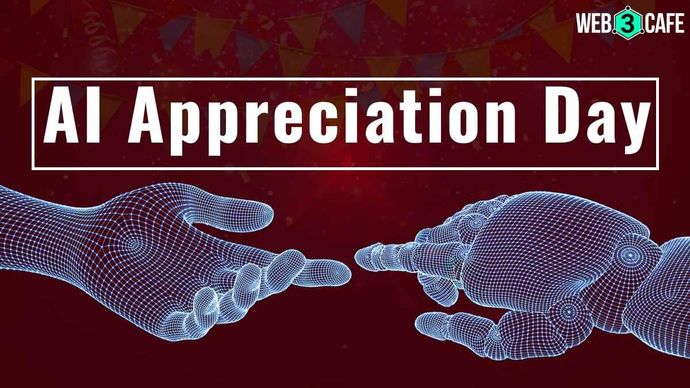Unravelling the marvels of technology: Celebrating AI Appreciation Day & its impact on emerging technologies
AI Appreciation Day is celebrated on 16 July every year as we recognise the contribution of AI in some of the technological innovations that have cropped up over the past few years.

Highlights
- 16 July is celebrated as AI Appreciation Day
- The term "artificial intelligence" was coined in 1955 by John McCarthy
- Some famous AI tools used today are ChatGPT and Midjourney
The age of AI is upon us and one cannot help but think that it's going to play a key role in the lives of all in the years to come. Considering the impact that AI is having on the lives of people, Artificial Intelligence Appreciation Day is celebrated on July 16 each year.
The term "artificial intelligence" was coined in 1955 by John McCarthy, a computer scientist at Dartmouth College. McCarthy and his colleagues organised a workshop that year to discuss the possibility of creating machines that could think like humans. The workshop is considered to be the start of the field of AI research. Since then, there have been many advancements in AI.
AI systems are now used in a wide variety of applications, including facial recognition, natural language processing, and machine translation. AI is also being used to develop new technologies, such as self-driving cars and virtual assistants.
Why do we celebrate AI Appreciation Day?
Artificial Intelligence Appreciation Day is a chance to celebrate the progress that has been made in AI, and to consider the potential of AI to revolutionise technology in the future. AI has the potential to enhance our lives and make it more efficient, and more enjoyable. A clear example is how ChatGPT or tools like Midjourney have been able to impact the creative industry in the past few months. Not only has AI helped reduce the amount of time it takes to do work but has also enhanced our creativity.
As we celebrate AI Appreciation Day, let us be mindful of the ethical implications of AI development. We need to ensure that AI is used for good, and not for harm. While countries are trying to regulate the use of AI, it should also be given the appropriate time and space to grow.
We also need to ensure that AI is accessible to everyone, not just to the wealthy and powerful.
How AI is going to revolutionise technology in the future?
Artificial intelligence (AI) is rapidly changing the way the world works, and its impact is only going to grow in the years to come. AI is already being used in a wide variety of industries, and it is poised to revolutionise many more. Here are just a few of the ways that AI is going to revolutionise technology in the future:
AI-powered machines will become more intelligent and capable. AI systems are already capable of performing many tasks that were once thought to be the exclusive domain of humans. As AI continues to develop, machines will become even more intelligent and capable. This will lead to new and innovative applications for AI, such as self-driving cars and virtual assistants.
AI will be used to personalise products and services. AI can be used to collect and analyse data about individuals, which can then be used to personalise products and services. This will lead to a more customer-centric experience, and it will also help businesses to better understand their customers' needs.
AI will be used to automate tasks. AI can be used to automate many tasks that are currently performed by humans. This will free up the human workforce to focus on more creative and strategic tasks. It will also lead to a more efficient and productive workforce.
AI will be used to solve complex problems. AI can be used to solve complex problems that would be difficult or impossible for humans to solve on their own. This includes problems in areas such as healthcare, finance, and transportation.
Generative AI has advanced to new levels of maturity and sophistication during the last two years, growing by leaps and bounds. Looking at the fast-paced business landscape; integrating and exploring AI is essential for individuals and organisations to capitalize on opportunities.
As we look ahead, AI will be a game-changer, democratizing knowledge and transforming industries across the spectrum.
The future of AI is bright, and it is clear that AI is going to have a profound impact on technology. AI is already being used to improve our lives in many ways, and its impact is only going to grow in the years to come.
